Class Writing

What are the best methods for taking notes in class ?
The text provides a comprehensive overview of four effective methods for taking notes in class, namely the Cornell Method, Outlining Method, Mind Mapping Method, and Sentence Method. The Cornell Method involves dividing your paper into three sections to organize your notes, while the Outlining Method uses headings and subheadings to create a hierarchical structure. The Mind Mapping Method is a visual technique that involves creating a diagram of connected ideas, and the Sentence Method involves taking notes in complete sentences to better understand and retain information. Each method has its own unique steps and benefits, making it important for students to choose the one that works best for them.

How do I develop a unique writing style ?
The text provides a detailed guide on "How to Develop a Unique Writing Style." It outlines five key steps: reading widely, practicing writing regularly, experimenting with different techniques, finding your unique voice, and seeking feedback from others. The author emphasizes that developing a distinctive style takes time and effort but can significantly enhance one's writing impact.

How can I improve my writing skills ?
The text provides a comprehensive guide on how to improve writing skills. It outlines strategies such as reading regularly, practicing writing daily, learning grammar and style guides, getting feedback, revising and editing, studying writing techniques, setting realistic goals, finding one's voice, staying motivated, and keeping the learning process continuous. Each strategy is further elaborated with specific actions or methods that can be adopted. The emphasis is on consistency and openness to learning from both successes and failures in the writing journey.
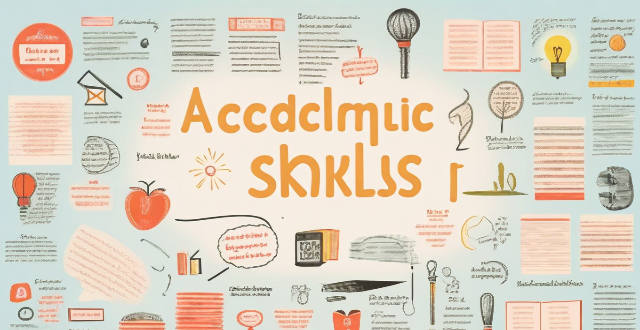
How do I improve my academic writing skills ?
Improving your academic writing skills is crucial for success in higher education. Tips include reading extensively, practicing regularly, seeking feedback, planning and organizing ideas, using appropriate language and tone, following proper formatting guidelines, and editing and proofreading carefully. By following these tips, you can enhance your writing abilities over time.

How do I make my writing more engaging and interesting to read ?
Writing is an art form that requires practice, patience, and a willingness to experiment with different techniques. To make your writing more engaging and interesting to read, consider using vivid language, telling stories, using active voice, varying sentence structure, incorporating humor, and showing rather than telling. These strategies can help bring your writing to life and keep readers interested.

Can playing sports improve one's writing skills ?
Playing sports can indirectly improve writing skills by enhancing focus, creativity, and reducing stress. It also promotes discipline, teamwork, and resilience, qualities beneficial for writing. Incorporating sports into a routine can inspire more engaged and authentic writing.
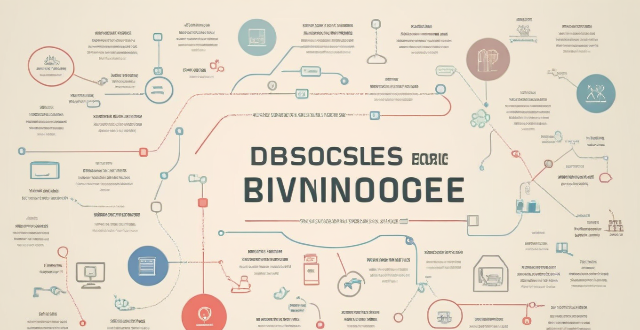
What is the difference between academic and non-academic writing ?
The article discusses the differences between academic and non-academic writing in terms of purpose, audience, style, structure, and language features. Academic writing aims to convey complex ideas and research findings to a specialized audience using formal, objective, and precise language, while non-academic writing focuses on informing, entertaining, or persuading a general audience using informal, subjective, and general language. The structure of academic writing is rigid and includes detailed analysis and extensive citations, whereas non-academic writing has a flexible structure, narrative style, and limited references. Language features also differ, with academic writing using complex sentences, passive voice, and abstract concepts, while non-academic writing prefers simple sentences, active voice, and concrete examples.

How do I structure my writing effectively ?
Effective writing structure is crucial for conveying your message clearly and engagingly. Here are some tips on how to structure your writing effectively: 1. Understand the purpose of your writing and tailor your structure accordingly. 2. Create a basic outline before you start writing, organizing your thoughts into sections such as introduction, body, and conclusion. 3. Start with an attention-grabbing opening that sets the tone for your piece and state the main idea or thesis statement clearly in the introduction. 4. Divide the body into paragraphs, each presenting a single main point, and use topic sentences to introduce each paragraph's main idea. Provide evidence or examples to support your points and maintain a logical flow between paragraphs. 5. Summarize the main points without repeating them verbatim in the conclusion, draw a conclusion based on the evidence provided, and end with a memorable closing statement or call to action. 6. Break up long sections with headings and subheadings to help readers navigate through your text easily. 7. Maintain consistency in tense, voice, and perspective, and stick to one style guide for formatting and references. 8. Review your work for clarity, coherence, and correctness, making sure each sentence contributes to the overall structure and purpose.
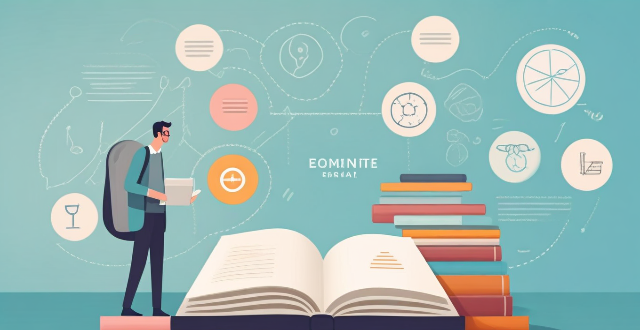
What are some effective techniques for improving my writing ?
Improving your writing skills involves a combination of reading, practicing, and receiving feedback. Regular reading helps in understanding different styles and techniques, while daily writing exercises such as journaling or crafting short stories enhance clarity and coherence. Grammar and vocabulary practice through exercises and learning new words are crucial. Seeking peer and professional feedback allows for constructive criticism. Revision is key, with multiple drafts and editing tools aiding in refining work. Studying writing techniques through courses and books deepens understanding. Setting writing goals, experimenting with different styles, and using writing prompts foster creativity and structured practice. Lastly, maintaining a healthy lifestyle supports mental clarity and creativity. Consistent effort and patience lead to significant improvements in writing skills over time.

What are some common mistakes to avoid in academic writing ?
Avoid common mistakes in academic writing, such asAvoid common mistakes in academic writing, such as, lack of clarity and precision overuse of passive voice, inappropriate word choice, failure to proofread, and ignoring feedback. These pitfalls can make your writing less effective and professional. By avoiding them, you can improve the quality of your academic writing and better convey your research and ideas to your audience.

What are the key elements of academic writing ?
Academic writing is a form of writing that follows specific guidelines and conventions to ensure clarity, precision, and objectivity. Key elements of academic writing include a clear and concise title, an abstract summarizing the paper, an introduction setting the stage for the research, a literature review evaluating existing research, a methodology section describing the research design and procedures, a results section presenting the findings, a discussion interpreting the results, a conclusion summarizing the main points, and references listing sources. Appendices may also be included for supplementary materials.

What are some tips for editing and revising my writing ?
Editing and revising are crucial steps in the writing process that can significantly improve the quality of your work. Here are some tips to help you edit and revise your writing effectively: 1. Take a break from your writing to get a fresh perspective. 2. Read your writing out loud to catch awkward phrasing, grammatical mistakes, and typos. 3. Check for clarity and coherence within and between paragraphs. 4. Pay attention to sentence structure and vary sentence length to create rhythm and interest. 5. Use active voice instead of passive voice whenever possible. 6. Eliminate redundant words or phrases and be concise without sacrificing clarity or meaning. 7. Vary vocabulary by using synonyms to avoid repeating the same words. 8. Use spell-check and grammar-check tools, but also read through your work carefully to catch any errors they might miss. 9. Get feedback from someone else to spot issues you haven't noticed and offer valuable suggestions for improvement. 10. Revise your work multiple times to refine it further and make it stronger overall.

How can I improve my grammar and punctuation in writing ?
Improving grammar and punctuation skills is essential for becoming a proficient writer. Here are some tips: 1. Read widely to expose yourself to different styles of writing, grammar rules, and punctuation usage. 2. Practice active reading by analyzing sentence structure, vocabulary, grammar rules, and punctuation. 3. Write regularly to become better at using proper grammar and punctuation. 4. Get feedback from others to receive constructive criticism on your grammar and punctuation. 5. Use online tools and resources like grammar checkers, online courses, and grammar books to improve your skills. 6. Study grammar rules and punctuation guidelines focusing on parts of speech, sentence structure, and correct uses of punctuation marks. 7. Edit and revise your work thoroughly to ensure clarity, consistency, correctness, and completeness. Remember that mastering these aspects of writing takes practice and patience, so keep improving!

How do athletes use their experiences in sports to inspire their writing ?
Athletes often draw from their experiences in sports to inspire their writing. Here are some ways in which they do so: 1. Overcoming Adversity: Athletes face numerous challenges and setbacks throughout their careers, such as injuries, losses, and pressure to perform. These experiences can serve as powerful sources of inspiration for their writing. They can share stories of how they overcame these obstacles and the lessons they learned along the way. 2. Teamwork and Collaboration: Sports often require teamwork and collaboration, which can translate into valuable insights for writing about relationships, communication, and leadership. Athletes can write about the importance of working together towards a common goal, trusting one another, and supporting each other through difficult times. 3. Discipline and Perseverance: The discipline required to excel in sports can be applied to other areas of life, including writing. Athletes can write about the value of perseverance, dedication, and hard work, and how these qualities have helped them achieve success both on and off the field. 4. Mental Toughness: Sports often test an athlete's mental toughness, requiring them to stay focused, motivated, and resilient in the face of adversity. These experiences can provide valuable insights for writing about resilience, determination, and overcoming self-doubt. 5. The Pursuit of Excellence: Athletes strive for excellence in their chosen sport, constantly pushing themselves to improve and reach new heights. This pursuit of excellence can inspire writers to strive for greatness in their craft, always seeking to refine their skills and create something truly exceptional. 6. Embracing Failure: In sports, failure is inevitable. Athletes learn to embrace failure as an opportunity to learn and grow, rather than a reason to give up. This mindset can be incredibly valuable for writers who may face rejection, criticism, or creative blocks. By embracing failure as a necessary part of the process, athletes can inspire writers to keep pushing forward despite setbacks. 7. Finding Inspiration in Routine: Athletes often have rigorous training routines that require them to push themselves physically and mentally every day. This disciplined approach to daily practice can inspire writers to establish their own routines and rituals that help them stay focused, productive, and creative. 8. The Power of Mindset: The mindset required to succeed in sports can also be applied to writing. Athletes must believe in their ability to achieve their goals, even when faced with seemingly insurmountable challenges. This positive mindset can inspire writers to believe in their own abilities and persevere through difficult times. 9. Celebrating Triumphs: Finally, athletes often celebrate their triumphs and accomplishments, no matter how small they may seem at the time. These moments of joy and pride can serve as powerful reminders for writers that every step forward is worth celebrating, and that progress comes from consistent effort and dedication over time.

How might AI influence creative industries like music, art, and writing ?
AI is transforming creative industries, enhancing and augmenting the creative process. It influences music production, art generation, and writing by offering tools for composition, sound design, mixing, generative art, content generation, and real-time translation. AI also assists in music recommendation, art analysis, and proofreading. Despite its potential, AI should complement human creativity, as art's essence lies in unique perspectives and emotions that only humans can provide.

What is the best way to take notes in class ?
The article offers advice on effective note-taking during classes, emphasizing the importance of choosing a method (notebook or laptop), organizing notes with clear structure, focusing on key concepts, using visual aids, reviewing and revising notes, asking questions, and collaborating with classmates. These strategies are crucial for retaining information and understanding lecture content, ultimately contributing to academic success.
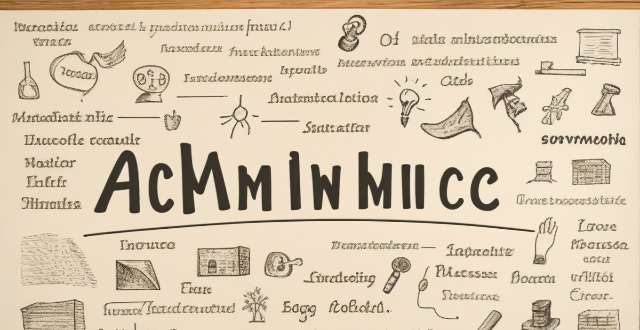
What are some tips for effective academic writing ?
Effective academic writing is essential for success in higher education. To improve your skills, understand the assignment, plan your work, conduct research, write clearly and concisely, use evidence to support arguments, edit and revise your work, follow academic integrity guidelines, use visual aids when applicable, stay focused on the main point, and seek feedback from others.
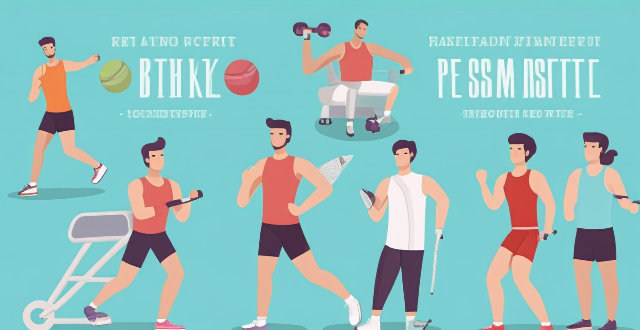
Is there a connection between sports and improved mental well-being ?
The relationship between sports and improved mental well-being is evident in numerous studies, indicating that engaging in physical activities significantly contributes to an individual's overall psychological well-being. This connection can be analyzed from various angles, including physiological responses, social interactions, personal development, and the role of subjective class identity and health. Physiological responses to sports include endorphin release and stress reduction, while social interactions provide opportunities for teamwork and belongingness. Personal development through sports enhances self-esteem and discipline. The mediating roles of class identity and health also play a part in this relationship. Overall, sports participation positively affects individuals' subjective well-being through various mechanisms, enhancing their mental health and overall quality of life.

How do I cite sources in academic writing ?
The text discusses the importance of citing sources in academic writing and provides guidelines on how to do so. It emphasizes the need to choose a citation style that aligns with the requirements of the discipline or institution, use in-text citations appropriately, create a reference list or bibliography, potentially use footnotes or endnotes, and maintain consistency throughout the paper. The text also includes an example of citing sources in APA style.

What are the benefits of taking a cooking class while on vacation ?
Taking a cooking class while on vacation offers numerous benefits, including improved culinary skills, cultural immersion, social experiences, personal growth, and health benefits. Learn new techniques and local cuisine, understand traditions, practice language skills, meet new people, build confidence, enhance creativity, incorporate healthy habits, and relieve stress.
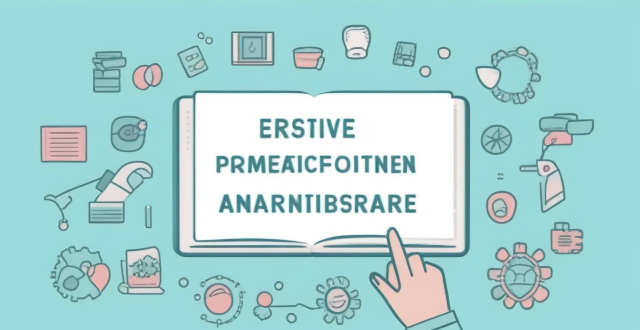
What are the best ways to take notes during a lecture or class ?
The given text provides a detailed guide on how to take effective notes during a lecture or class. It emphasizes the importance of active listening, organizing one's notebook, using shorthand and abbreviations, focusing on key ideas, utilizing visual aids, reviewing notes, collaborating with peers, and leveraging technology for note-taking. The strategies aim to enhance learning and retention by capturing essential information efficiently.

How much should I invest in each type of asset class ?
The text provides a guide on how to determine the allocation of funds across different asset classes based on investment goals, risk tolerance, time horizon, and financial situation. It suggests that younger investors should allocate more towards stocks while older investors should gradually shift towards safer investments. The text also emphasizes the importance of regularly reviewing and rebalancing the portfolio and seeking professional advice when unsure about investment decisions.

What are the most romantic high-class restaurants for a special occasion in Rome ?
Rome, known as the city of love, boasts a variety of high-class restaurants perfect for special occasions. Among them are Aroma with its elegant ambiance and seasonal dishes; Il Conventino, offering historic charm and vegan options; La Pergola, renowned for its Michelin stars and innovative cuisine; Ristorante La Terrazza dell'Eden, providing chic ambiance and internationally influenced Italian fare; and Imàgo, known for its modern style and seafood specialties. Each restaurant offers a unique experience to make your special occasion unforgettable.
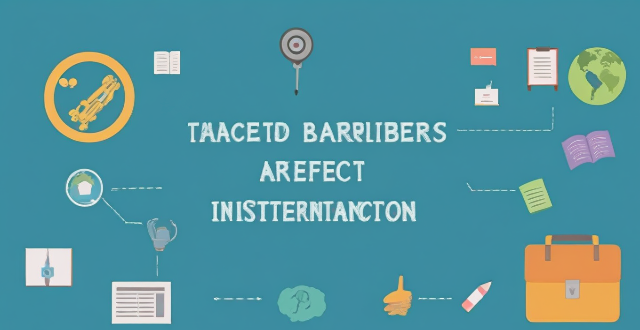
How do language barriers affect the learning experience of international students ?
The article discusses the impact of language barriers on the learning experience of international students, including communication difficulties in lectures and class discussions, academic challenges in reading assignments, writing tasks, and test-taking, as well as social integration issues such as making friends and participating in campus life. It also suggests strategies to overcome these barriers, such as utilizing educational support services, technology tools, and active participation in language exchange programs.
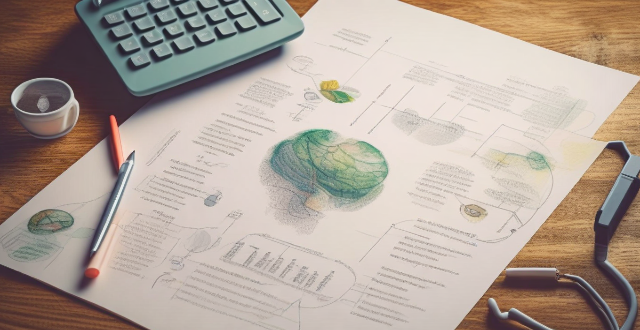
What ethical considerations should be taken into account when writing product reviews ?
Ethical considerations are crucial when writing product reviews to ensure trustworthiness and credibility. Reviewers should be honest, transparent, fair, and impartial, respect intellectual property, and be responsible towards readers. They must disclose any personal or financial interests, provide accurate information, avoid biased opinions, and refrain from making personal attacks. Comparative analysis should be fair, and language neutral. Original content is essential, with proper credit given where due, and copyright compliance maintained. Trade secrets should not be revealed, and trademarks or patents should not be infringed upon. The review's purpose should be clear, useful information provided, potential issues warned about, old reviews updated, and feedback engaged with. By considering these aspects, reviewers can contribute positively to the online community and build trust with their audience.